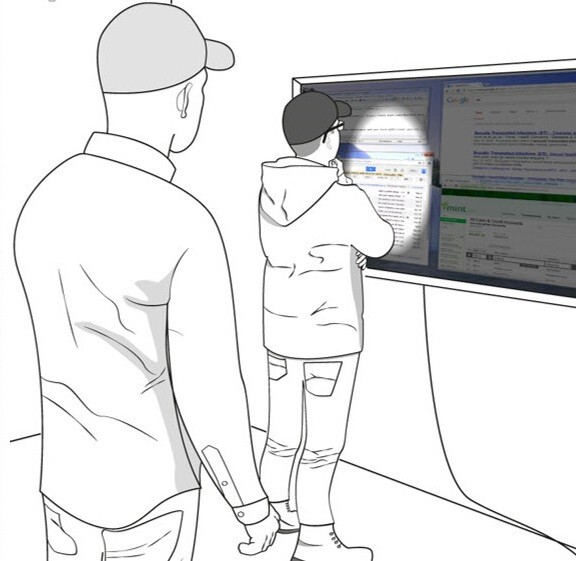- Full paper at Pervasive Display '14
- Extended Abstract at CHI '14
- Pervasive Displays paper in the ACM DL
- CHI EA in the ACM DL
tl;dr: As large displays become more common in public spaces, they raise risks of exposing personal or sensitive information to passers-by. We address this by leveraging territoriality and proxemics to detect shoulder-surfing and respond accordingly: providing users with awareness of being observed, enabling simple actions to move or hide information, or automatically masking content from unwanted views.
Displays are growing in size, and are increasingly deployed in semi-public and public areas. When people use these public displays to pursue personal work, they expose their activities and sensitive data to passers-by. In most cases, such shoulder-surfing by others is likely voyeuristic vs. a deliberate attempt to steal information. Even so, safeguards are needed. Our goal is to mitigate shoulder-surfing problems in such settings. Our method leverages notions of territoriality and proxemics, where we sense and take action based on the spatial relationships between the passerby, the user of the display, and the display itself. First, we provide participants with awareness of shoulder-surfing moments, which in turn helps both parties regulate their behaviours and mediate further social interactions. Second, we provide methods that protect information when shoulder-surfing is detected. Here, users can move or hide information through easy to perform explicit actions. Alternately, the system itself can mask information from the passerby's view when it detects shoulder-surfing moments.
